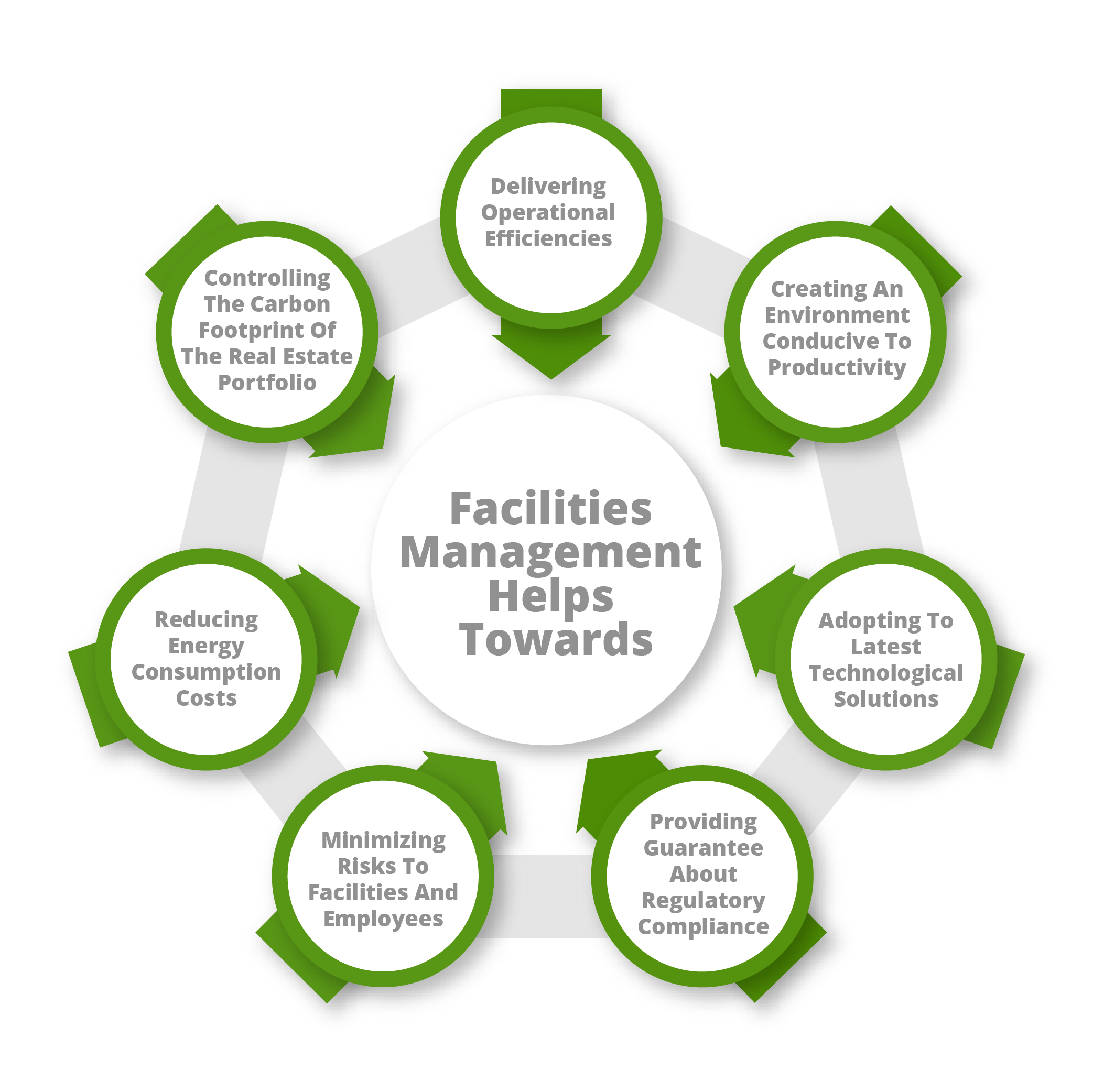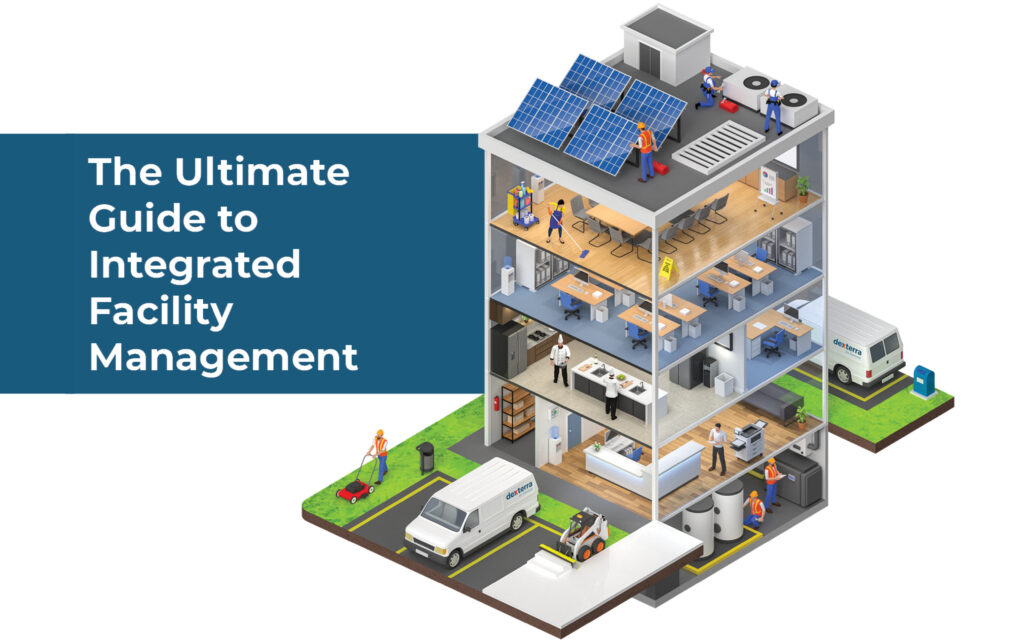Why Total Facility Management Is Vital for Business Success
Total Facility Management (TFM) serves as a foundation for organization success by harmonizing diverse functional facets such as upkeep, room utilization, and security procedures. As organizations browse a competitive landscape, understanding the multifaceted benefits of TFM can be critical in driving expense effectiveness and improving staff member performance.
Comprehending Total Facility Management
Total Facility Management (TFM) includes a thorough technique to managing an organization's buildings and associated solutions to ensure optimal functionality, safety, and efficiency. TFM incorporates numerous techniques, consisting of upkeep, procedures, area management, and security protocols, to create a natural structure that sustains an organization's core objectives.
At its core, TFM aims to streamline the procedures entailed in facility management, boosting and minimizing redundancies service delivery. This approach entails the control of activities associated with building management, such as repair work, cleansing, and power management, to promote an efficient environment for staff members and stakeholders alike. TFM likewise emphasizes the relevance of carrying out best techniques and ingenious technologies to enhance service quality and lower operational costs.
Recognizing TFM requires acknowledgment of its calculated significance in sustaining a company's objective. By aligning facility management activities with business goals, TFM boosts general efficiency while making sure compliance with health, safety and security, and environmental guidelines. Thus, TFM offers not just as a logistical function yet also as a critical asset, contributing to a company's long-term sustainability and development. In recap, TFM is vital for developing a well-functioning atmosphere for business success.
Key Benefits of TFM
Leveraging a detailed technique, companies that implement Total Facility Management (TFM) unlock a myriad of benefits that contribute to total company success. One of the main benefits of TFM is the improvement of functional performance. By settling facility solutions under a unified management framework, companies can enhance processes, reduce redundancies, and boost interaction throughout departments.
In addition, TFM promotes a positive upkeep technique, which reduces downtime and expands the life expectancy of facilitiess and devices (Total Facility Management). This aggressive approach not only boosts performance yet additionally cultivates a much safer working setting, inevitably bring about greater worker contentment and retention prices
Furthermore, TFM helps with better resource appropriation by offering understandings right into facility performance metrics. Organizations can recognize locations for enhancement, allowing them to make informed choices that align with their strategic objectives.
TFM and Expense Effectiveness
Achieving price effectiveness is an essential goal for companies, and Total Facility Management (TFM) plays a critical role in this undertaking - Total Facility Management. By integrating various facility services under a solitary management framework, TFM allows organizations to streamline procedures and minimize redundancies. This holistic strategy causes significant price savings, as it removes the requirement for multiple suppliers and streamlines procurement procedures
Furthermore, TFM additional info cultivates positive upkeep techniques, which minimize the danger of pricey repair services and downtime. By prioritizing precautionary steps, companies can prolong the life-span of their assets and lower unexpected expenses. In addition, TFM incorporates power management practices, which can considerably reduce utility expenses via efficient resource application.
The centralization of data and analytics within TFM enables companies to make informed monetary choices. By identifying patterns and locations for improvement, TFM allows customized approaches that further improve expense management. Furthermore, the scalability of TFM services makes sure that as organizations grow, their facility management methods continue to be efficient and aligned with financial goals.
Enhancing Worker Efficiency
A well-managed facility can significantly increase employee efficiency by producing a favorable work atmosphere. Efficient Total Facility Management (TFM) ensures that all elements of the office-- from lights and temperature level to sanitation and safety and security-- are maximized. When staff members run in an area that is comfortable and well-maintained, they are a lot more likely to focus on their tasks, resulting in greater result and task contentment.
Additionally, TFM can improve partnership through the strategic layout of public areas, encouraging teamwork and development. By purchasing the right sources and innovation, organizations can help with smooth interaction and improve workflows, further enhancing performance. Routine maintenance and punctual actions to facility concerns stop interruptions that could or else impede efficiency.
Furthermore, a healthy and balanced and safe workplace, sustained by TFM methods, reduces absence and promotes wellness, straight correlating with raised efficiency degrees. Eventually, focusing on facility management is an investment not just in physical assets yet also in the labor force itself. By promoting an environment that supports staff member requirements and choices, companies can grow a more engaged and reliable workforce, driving total success and competitive benefit.

Future Trends in TFM
Accepting technological improvements is established to improve Continue the landscape of Total Facility Management (TFM) in the coming years. As the need for effectiveness and sustainability increases, TFM will increasingly adopt smart building technologies, integrating Web of Things (IoT) devices to keep track of and handle facility procedures in real-time. This change will allow positive maintenance, considerably improving and minimizing operational expenses service delivery.

Sustainability stays an important focus, with TFM specialists expected to focus on eco-friendly methods. This consists of utilizing renewable resource sources and enhancing waste management systems to lower the carbon impact of facilitiess.
Remote management capacities will certainly also be expanded, allowing facility managers to manage procedures from basically anywhere. This adaptability will certainly come to be essential as companies adjust to crossbreed job versions. In recap, the future of TFM is positioned for transformation through technology, sustainability, and enhanced operational strategies, guaranteeing services stay affordable in a progressing landscape.
Final Thought
By integrating numerous operational features, TFM improves performance and lines up facility management with organizational purposes. As companies increasingly embrace innovative modern technologies and sustainable techniques, the importance of TFM will certainly continue to expand, ensuring lasting operational efficiency and competitiveness in a progressing industry.
